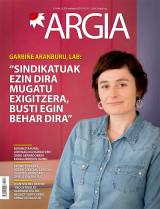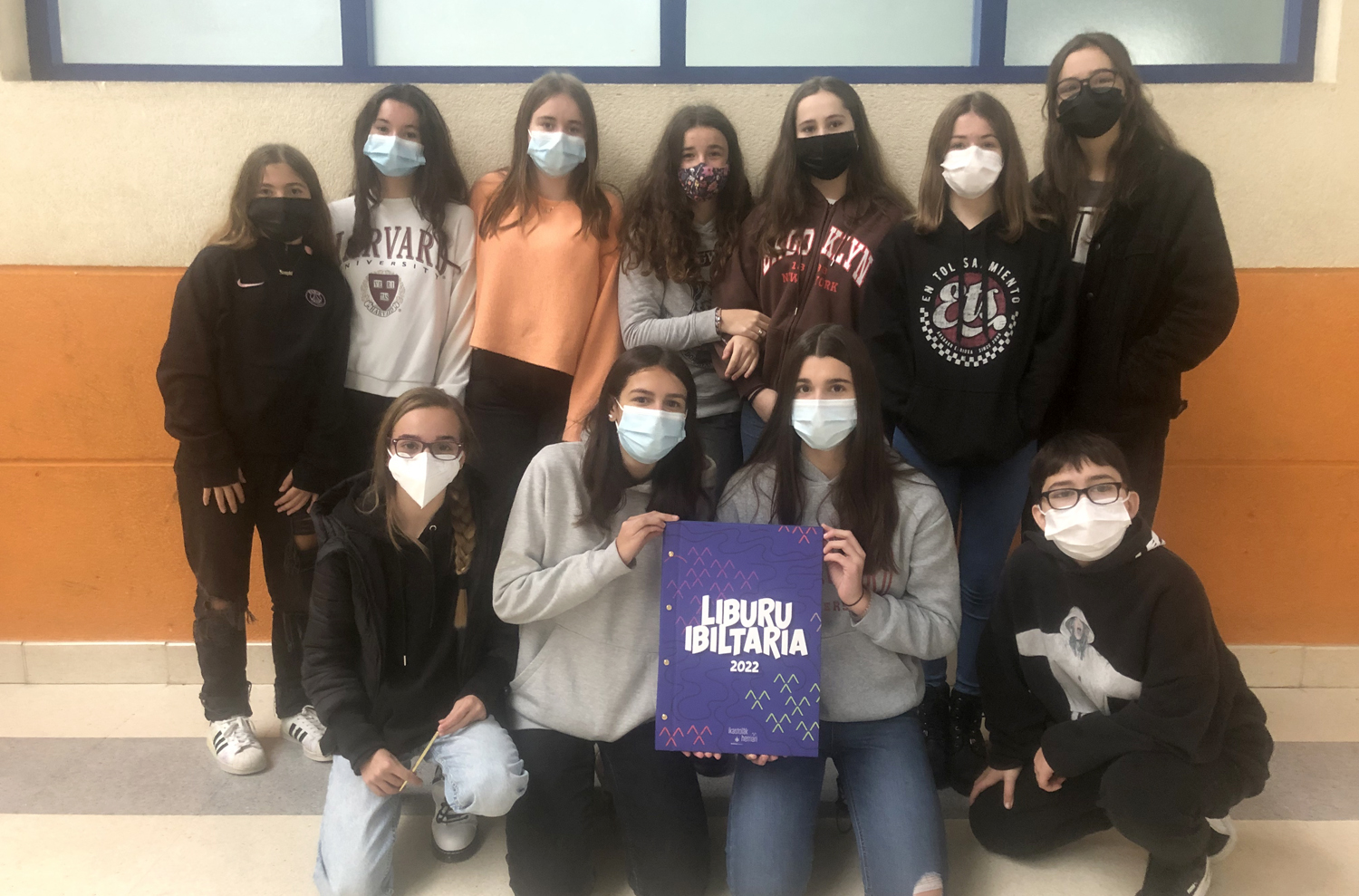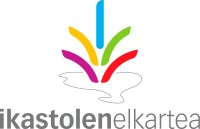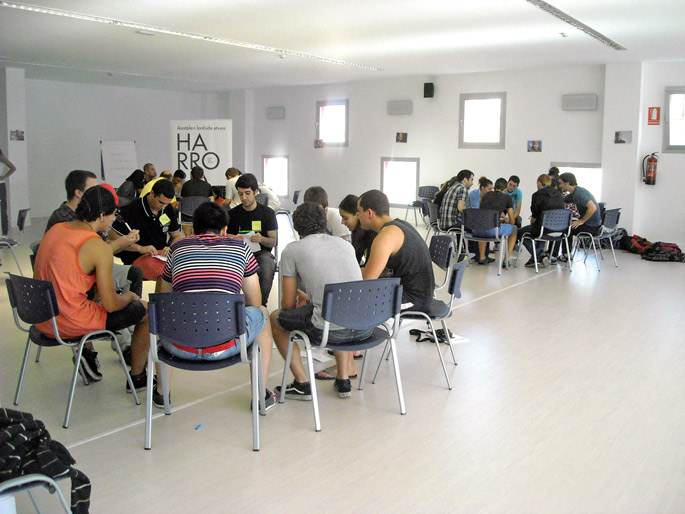"The need for a change in education doesn't stop, but you have to believe."
- The ikastola Larramendi de Mungia is in a moment of transformation. They are immersed in a comprehensive plan to detect the needs of the ikastola and implement projects based on them. Itziar Nogeras, director of the ikastola, explained that the process has created a crisis inside the house, but that they have taken the path. They bear witness to the march: the date is 28 May, under the slogan Egunero alkarregaz.
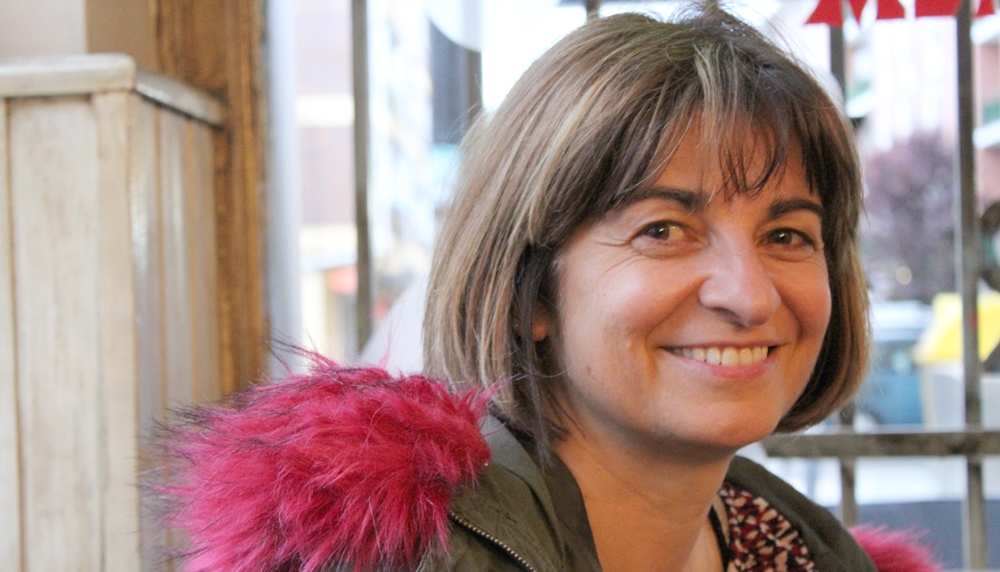
What are the main characteristics of the ikastola Larramendi?It is a large ikastola both in terms
of infrastructure and extension, isolated in a neighborhood and of a popular character. We have an offer of 0-18 years and we welcome students from all over Mungialde, in total about 1,300. This year the ikastola is 50 years old and is a cooperative in which the former students are members of the commission. That's a new phenomenon.
Many ikastolas celebrate their 50th anniversary. Are we satisfied with the structures created by previous generations? That lives
in ikastola as a rich heritage inherited that needs development and care. We are aware that we are losing out and the involvement and participation of that time must be reinvented. Current families, in general, leave their sons and daughters in the middle and in principle do not get involved anymore. On this concern, several partners are working.
You have put in place a comprehensive strategic plan. Where does the need come from? The
reasons are diverse, but above all the families who have been in the committee have seen the need. Society is more demanding than it was before with education and has great challenges on its hands. The current typology of students is complex and, as it can be more complex, we want to anticipate. You can make changes based on the needs you see on time, but our intention is to go further. Education experiences a moment of change, and everyone has to look for their model. In our case, the decision is made to advance the transformation, so that it does not bring the current. Hence the strategic plan. In this course, we begin the reflection to encourage the participation and shared reflection of families, teachers and workers. To this end, a working group has been set up and we have identified a number of projects. These projects will be the next step in implementing the strategy.
What does it mean to launch such a process?
When I got in the direction last June, I found a desire to get out of a stop, but the ways of understanding things don't always match. The review of the direction of ikastola has led to a clash of views and a crisis that joins the great possibilities for innovation. The differences in the construction of the strategy are not so great, so I am focusing there, jointly agreeing on a diagnosis. It is important to know yourself as an institution to know, accept and improve your strengths and weaknesses. It is easy to say, but getting there has been a great job.
“Despite dreaming of the educational revolution, it is a ikastola that unites you the most to the earth”
What has caused the shock?
How to decide. The objective has been immediately agreed, the difficulty is how we are going to do it at rhythms, because the changes are enormous. The team of teachers is working at their own pace and the family is demanding the highest possible level of education. It is true that the environment is touched by the crisis and that has created difficulties, but if not, I see an atmosphere of great responsibility, I really want to find the way. It would be a virtue if everyone knew what role it should play and did not feel that fathers and mothers enter more than they should know and vice versa.
It is a comprehensive, long-term plan. How have you organized the process?
Immersed in processes, implementing systems to support teamwork. In the first phase, we made a diagnosis of ourselves by the workers, the students, and the parents and volunteers. Each group also opened up to 100 people to conduct an all-day session, to work on vision and mission. In this second phase, parents and staff have worked together to identify the projects. We continue to deepen our reflection.
What projects have you identified to meet the needs?The key is pedagogical innovation, although organization and communication changes between people also require great work for the organization's gears
to be well oiled. One of the identified projects is advanced management to approach the quality model promoted by Euskalit; organizational and management transformation, both at the managerial level, daily work, as well as internal governance and management bodies. On the other hand, the transformation of internal and external communication, an investment plan in line with pedagogical innovation and project-based teaching. In relation to the relational crisis, we have a social risk plan, because the work environment is also a key project.
What's the ikastola that you've drawn for tomorrow?A
ikastola euskaldun with students who get good results. It seems that the latter should not be said, but in a teaching that promotes multilingualism, the Basque culture is not easy. We want collaborative students, open to cultural diversity, but we want to strengthen our identity as a Basque institution.
What is the situation in the Basque Country?
There is a tremendous gap in the use of Euskera. I think it is a habit, an erdaldun social environment does not help, but I do not think it is the case with Mungia. There is a great opportunity for improvement, there are conditions and I think it is a very involved place. We will especially work on a project to increase its use in our community.
The EKI project and the Pedagogy of Trust are two of the last changes that have introduced many ikastolas.Lo of ours is also on that path, but what we have to work on is not so much theory as it is, but the debate, the project and how that has been
brought into the classroom. The basis is, among other things, project-based education and its connection with the organisation of infrastructures. We've known more cases, we've been out and we've seen that everyone has to look for their model. It is also important to have mutual knowledge, to know how pedagogy has been carried out in other centres.
He has been director of the Elhuyar Foundation and the European Cultural Capitality Donostia 2016. What have you found in Larramendi?
Every place is a world. Education is a fairly conservative sector, although paradoxically. Despite dreaming of the educational revolution, a ikastola is the sector that most unites you to the earth. I've specialized in modern management and advanced management, and integration into organizations is a long and profound process. I know a lot of things, especially in Euskera, and I think the time has passed for doing and doing. Now we have to realize that how they are made, it's as important as doing it. When I say advanced management, that's what I say, not having a tremendous computer application, but changing the way we make decisions.
Innovating in education is not easy, daily work often does not leave you much room for work in Basque. But the need for change goes from head to head and despite the difficulties, you have to believe that you can do it. Faced with a challenge as big as Larramendi’s, an appropriate management approach can help a lot to make the transformations right. Among the challenges we have is the amalgamation of management and pedagogy, and that is how management will be organised, so that they do not go from one pedagogy to another, but that management and accounts come together.
How have you married all this with the preparations of the Ibilaldia?
The journey has been approached with the same perspective: the Auzolan. In one of the last activities, in the camp, more than 180 people have painted and arranged the ikastola. In parallel with this reflection, many committees have been involved.
Sustrai Colina bertsolariak idatzi du abestiaren hizkia eta Ze Esatek taldeak jarri dio doinua. Bideoklipean Santurtziko Bihotz Gaztea ikastolako neska-mutilek hartu dute parte.
Larramendi ikastolak antolatu du 39. Ibilaldia, Mungian, eta milaka lagun elkartu dira zirkuituaren lau guneetan. Araba, Bizkaia eta Gipuzkoarako Hezkuntza Legea lortzeko akordioak bilatzeko eskaera egin du Ikastolen Elkarteak.
Parekidetasuna zeharlerro moduan landu dute Ibilaldian, eta, horretarako, lau pertsonako lan-taldea sortu dute.









